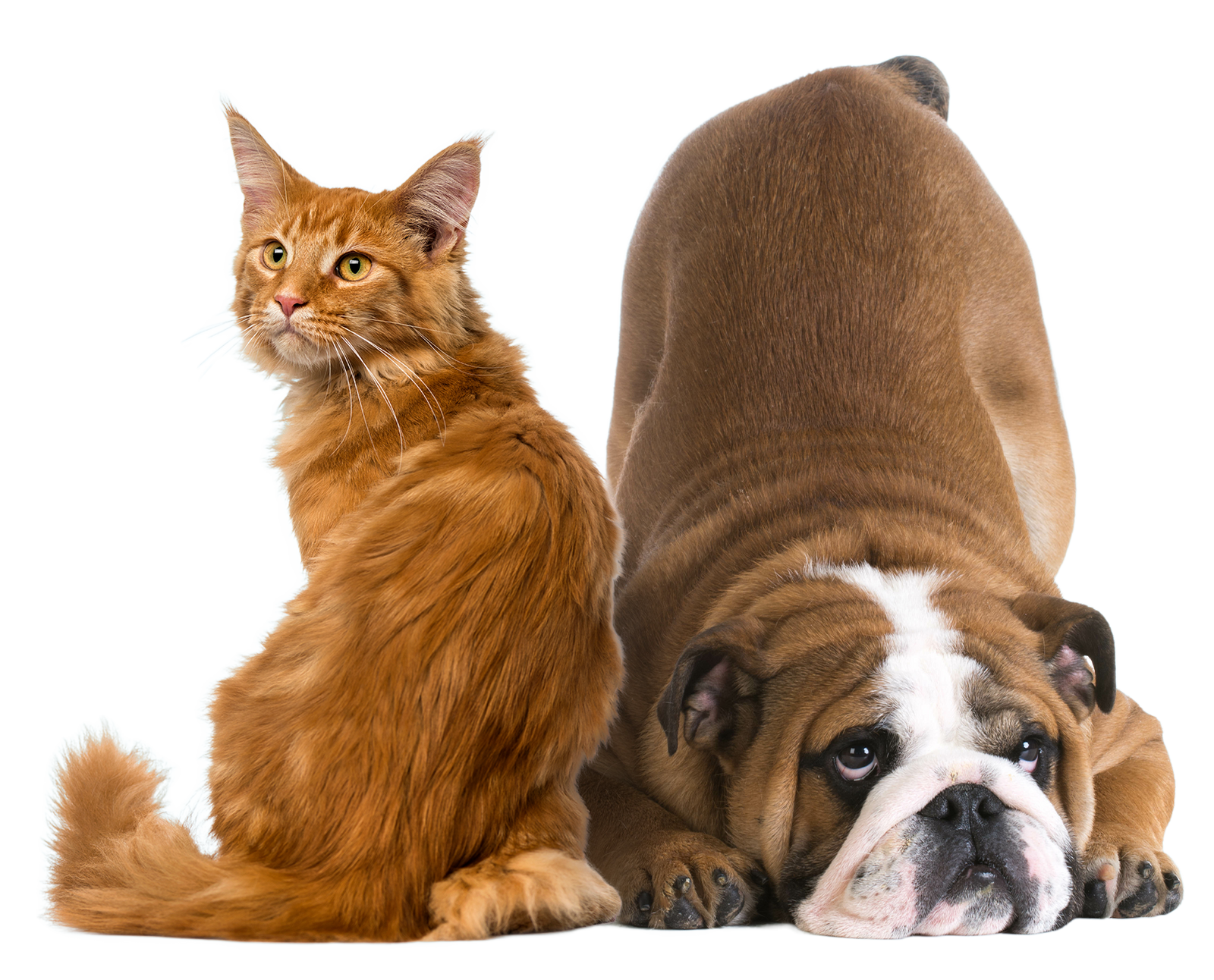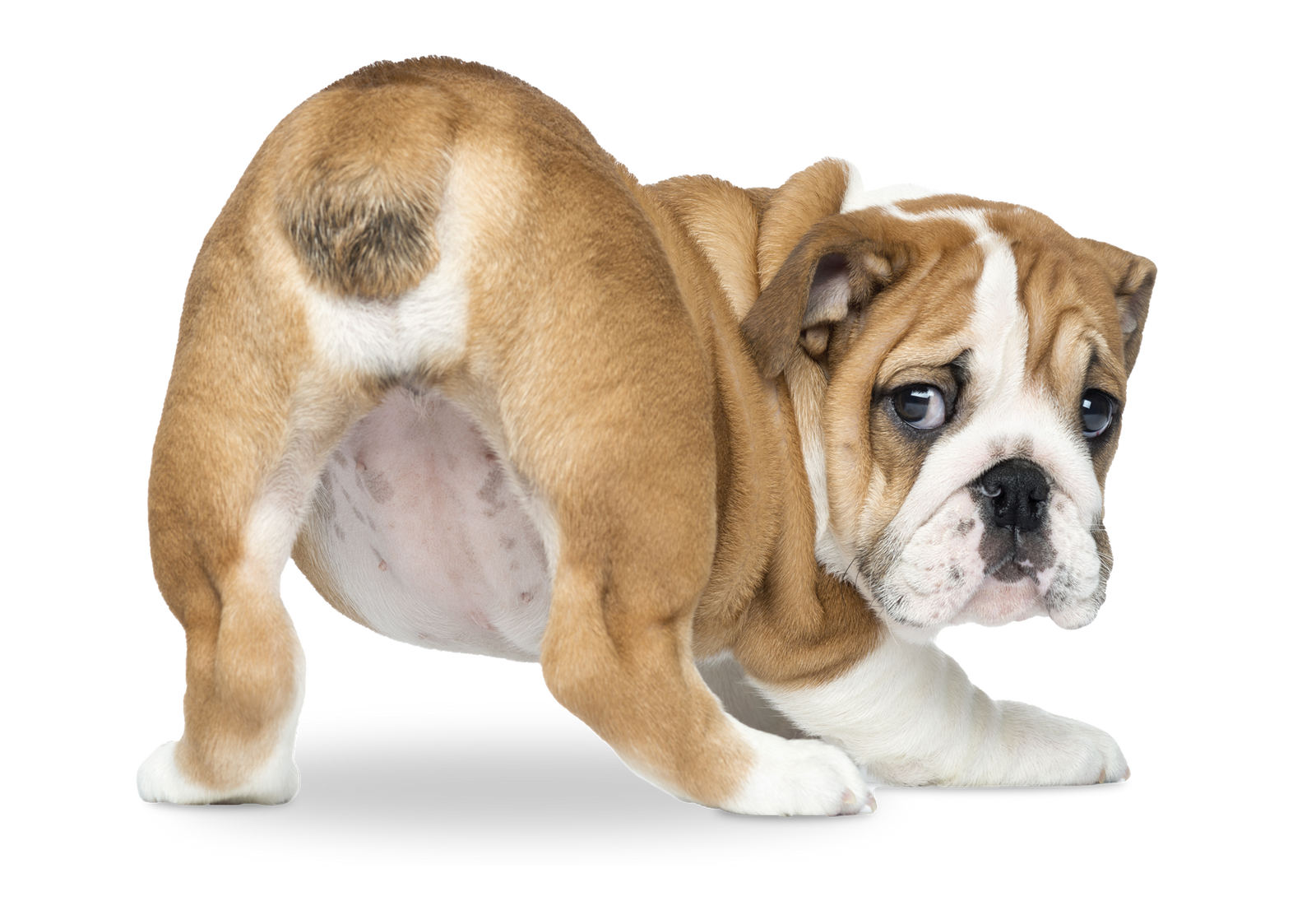Why Does My Dog’s Butt Smell Fishy? Improve Anal Gland Smell – Glandex

Why Does My Dog’s Butt Smell Fishy? Improve Anal Gland Smell
Why does my dog’s butt smell like fish, and how can I make it not smell that way? It’s not an uncommon question for pet parents, and these unpleasant smells often get chalked up to ‘normal’ dog odors. Although there are potentially a few different reasons that your dog’s butt smells, one of the most common reasons for this smell is because of anal gland issues.
Before we get to our best odor-eliminating tricks, we’ll discuss why dogs end up smelling like fish in the first place–and how you can help prevent those unpleasant scents long-term. Let’s learn more about why your dog’s butt smells as well as learn more about dog anal gland smell and what we can do to improve it.
What Are Anal Glands in Dogs?
Anal glands, also known as anal sacs, are two small glands located just inside a dog's anus, positioned at roughly the 4 o'clock and 8 o'clock positions. These glands naturally produce a foul-smelling secretion that is usually expelled when a dog defecates. This secretion plays a role in scent marking, allowing dogs to communicate with each other through their unique smell.
Each gland is filled with an oily, often fishy-smelling liquid that helps lubricate the passage of stool and marks the dog's territory. While these glands typically empty themselves during normal bowel movements, they can sometimes become clogged, impacted, or infected if the secretion is too thick, or if the ducts become obstructed. When this happens, it can cause discomfort for your dog and lead to the noticeable and unpleasant fishy odor.
Understanding the function and potential issues related to anal glands is essential for maintaining your dog’s comfort and health. If you notice your dog scooting, licking excessively at their rear, or if you detect a strong odor, it may be time to address potential anal gland problems.
How anal glands function
That fishy smell is from the scent-marking secretions that originate in your dog’s anal glands. So what are the anal glands, and are they supposed to smell like fish?
First, both dogs and cats have two small anal glands. They sit low on either side of the anal cavity at the 4 and 8 o’clock positions and can range from pea to grape size depending on the animal. Anal glands aren’t visible from the outside but can be carefully accessed by your veterinarian or someone trained in anal gland expression.
What’s the function of anal glands? The anal glands–also called anal sacs–are considered scent glands. When you see two dogs sniffing each other’s butt in greeting, they’re downloading information from the scent glands. They’re learning their furry friend’s age, sex, and overall health status–all with a few whiffs!
Tiny sebaceous (sweat) glands line the inside of your pet’s anal glands and produce an oily fluid that smells like fish. These smelly excretions produced by dog anal glands are useful for identification, but they need to express regularly to keep anal glands functioning properly.
Why does my dog’s butt smell like fish?
Now that you know how anal glands work, you might be wondering: how stinky is too stinky? Should you expect certain unpleasant smells, or is a persistent fishy smell a sign of something amiss? Let’s break down the basics.
1. Their anal glands expressed during defecation
First, it’s important to note that the scent/anal glands should naturally empty with every bowel movement. Have you ever wondered why dogs sniff each other’s poop? That’s to investigate the anal gland secretions that coat the stool and give them information on another dog.
This is the most natural way for glands to empty, and also means that your dog shouldn’t be smelling too fishy–because the stinky fluid has exited the body. If any fluid remains around their anus after defecation, it could leave a trace of fishy odor.
2. They excreted or “expressed” under duress
Sometimes, when dogs are scared, their anal glands will automatically express and they’ll immediately smell like fish. Much like cats will spray when nervous to mark their territory, dogs will involuntarily express to mark their territory in a new or stressful environment. That's because the glands are located between the internal and external anal sphincter muscles, and when they get scared they may inadvertently tense up, releasing the contents of their anal glands.
3. Their anal glands are full
The final reason why a dog’s butt smells like fish is when their anal glands aren’t emptying properly. As we mentioned before, your dog’s anal glands should empty naturally with every bowel movement–if they don’t, the fluid may slowly leak out on its own. This can happen between bowel movements when your dog is at rest, leading to a slew of unpleasant smells and messes around the house.
How To Improve Your Dog’s Fishy Smell
So your dog has a stinky butt. How do you get rid of the smell? Aside from supporting proper anal gland health–we’ll get to that, next–you can neutralize unpleasant odors pretty effectively at home.
Give their bottom a wipe-down
Pet cleaning wipes are a lifesaver for any pet parent, but anal gland wipes are a game-changer for this especially odorous area. If you do anal gland expressions at home or if you notice leaking or oozing from the anus–or if your dog’s bum simply needs a refresh–try a pet cleaning wipe.
Use a spray deodorizer
Take a hands-off approach to stinky butts with a deodorizing and anti-itch spray. If your dog is struggling with painful swelling around the anus, look for an anal gland spray with Lidocaine for pain relief and Hydrocortisone for anti-inflammatory support.
Shampoo when needed
If fishy smells are persistent or your dog has dense fur around the anus, a thorough shampoo might be the best way to erase odor. Choose a shampoo that’s gentle on delicate tissue, which is especially important for dogs with a strong fishy smell–who probably have tenderness due to underlying anal gland issues.
How To Get Rid of Dog Anal Gland Smell
Getting rid of the fishy smell associated with your dog's anal glands involves a few key steps. First, you may consider manually expressing the glands either at home or by seeking help from a veterinarian or professional groomer. Proper expression can release the trapped secretion causing the odor, but it's crucial to perform this safely to avoid discomfort or injury to your dog.
Regular bathing is another effective method to manage the smell. Use a mild, dog-safe shampoo, focusing on thoroughly cleaning the rear area. For dogs with sensitive skin or recurrent anal gland issues, medicated or antibacterial shampoos and hygienic wipes can be particularly helpful in reducing odors and preventing infections.
Diet also plays a role in managing anal gland health. Increasing your dog’s fiber intake can promote natural gland expression, which may help reduce the occurrence of the smell. Supplements like Glandex are specifically designed to support anal gland function and can be a valuable addition to your dog's diet.
If the odor persists or you suspect an infection, it’s important to consult your veterinarian. They may prescribe antibiotics or other treatments to address the underlying issue. Regular veterinary check-ups and monitoring your dog for signs of discomfort, such as scooting or excessive licking, can help catch any potential problems early, ensuring your dog stays comfortable and odor-free.
Supporting anal glands to reduce fishy smells
While you can deodorize your dog’s butt to the high heavens, addressing the underlying issue is paramount for reducing odor in the future. Healthy anal glands won’t give off extreme odors, and proper function can be supported in several ways at home.
Feed them a fiber-rich diet
Fiber helps to bulk up and firm your dog’s stool, which makes it more effective at expressing the anal glands as it passes through the anal cavity. Fiber-rich ingredients that are safe for dogs include Pumpkin, Milled Flaxseed, Apple, and Wheatgerm. A daily fiber supplement can be hugely beneficial for dogs struggling with leaky or stinky anal glands.
Work on hydration
Without hydration, fiber supplements and digestion won’t reach their full potential. Keeping your dog hydrated with fresh, clean water or moisture-rich foods can help them pass more productive stools and support natural anal gland expression.
Improve digestion
Giving your dog probiotics, prebiotics, and digestive enzymes can be especially helpful if your dog is sick or experiencing changes in digestion. Diarrhea is one of the most common reasons for anal glands not emptying naturally because the stool isn’t bulky enough to express the glands. Supporting your dog’s fiber intake and digestive function can be just as essential for anal gland health.
Fishy smells aren’t exactly abnormal, but it’s important to note how smelly and how frequently your dog is stinky. By supporting your dog’s overall anal gland health, you’ll also be setting them up for better hygiene and a fresher scent–while saving your nose!






